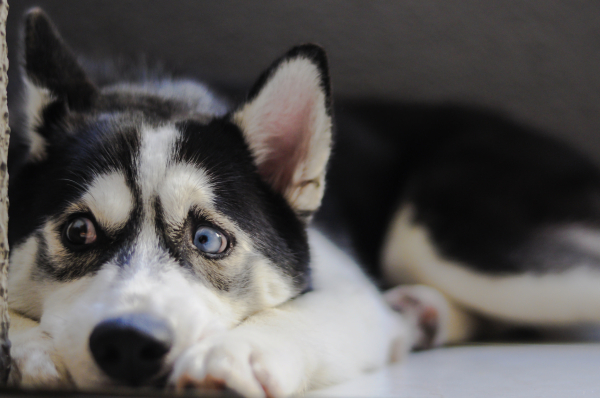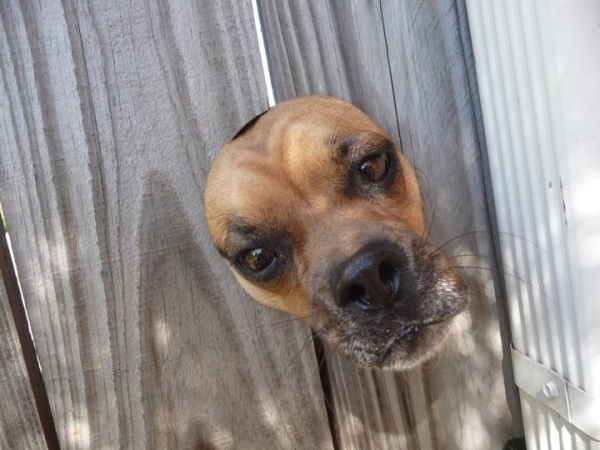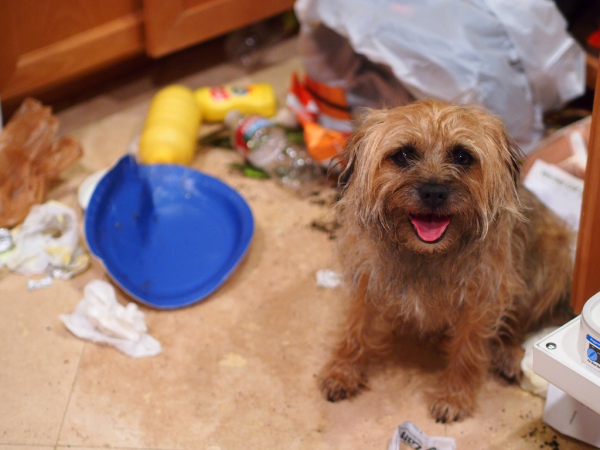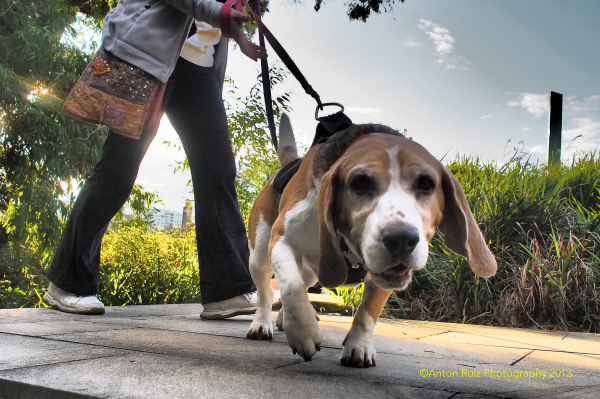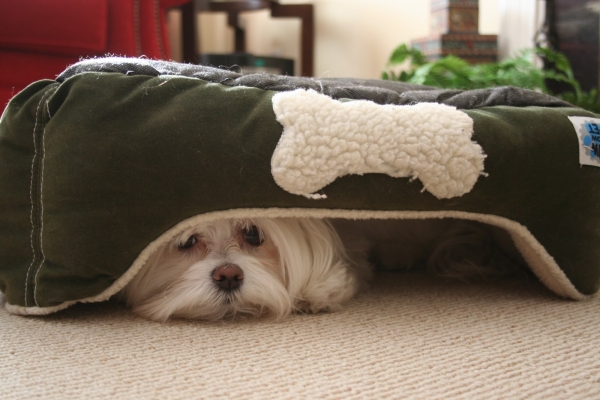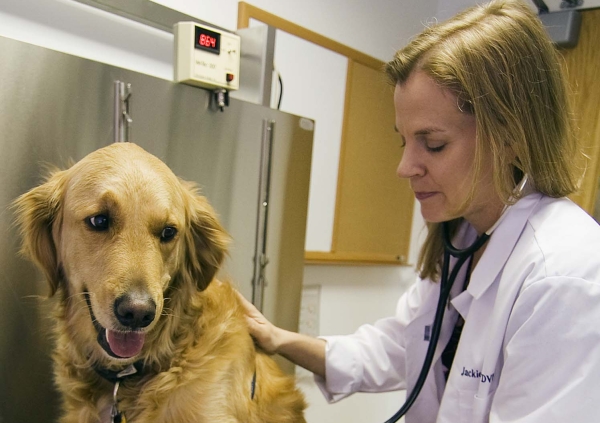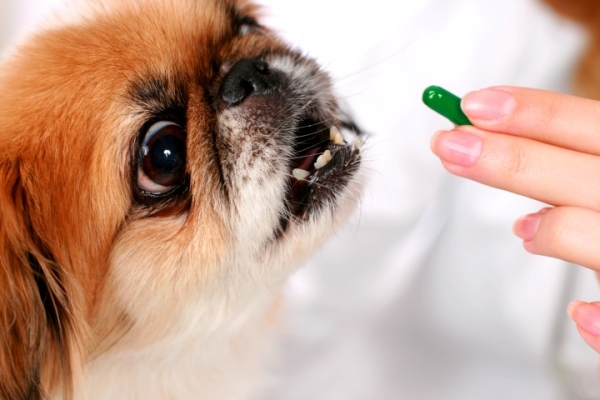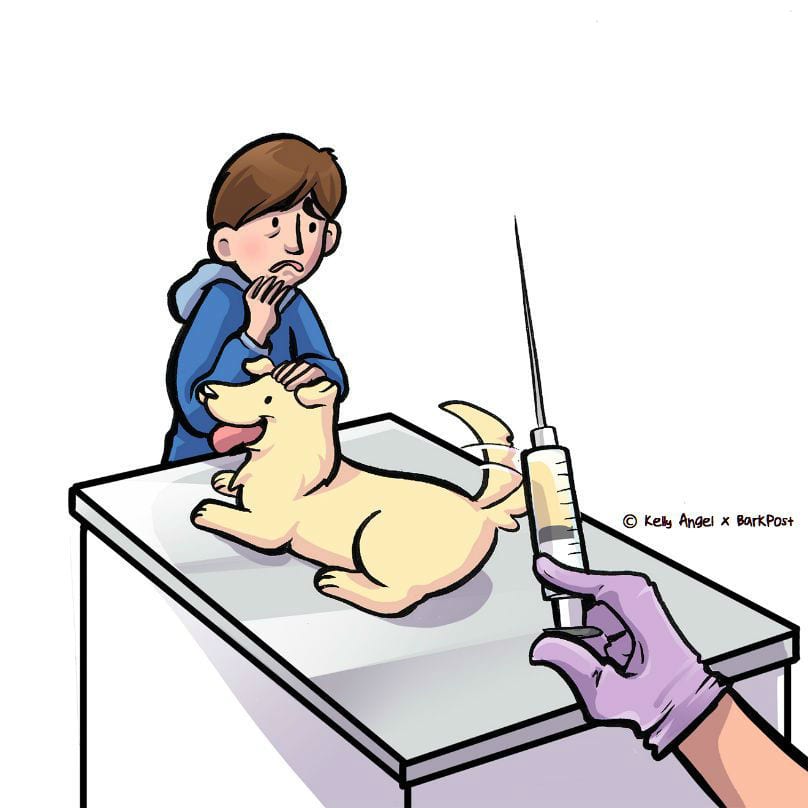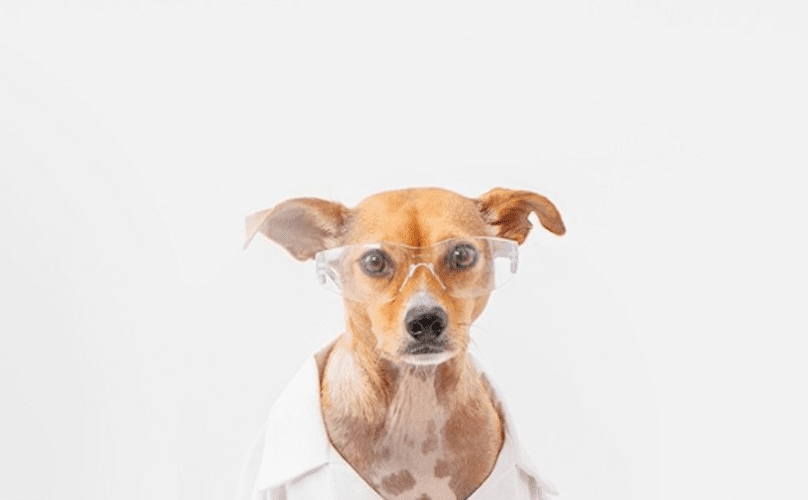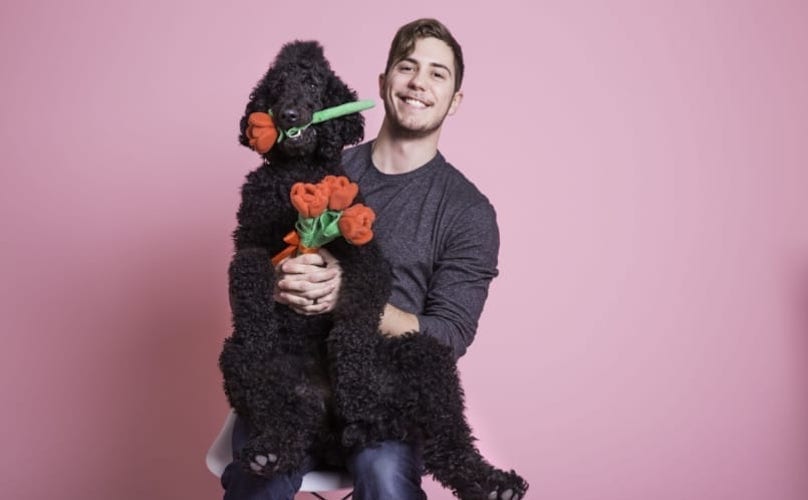You dread leaving your house each morning because you know your dog will provide a soundtrack of heartbreaking yowls. Summer thunderstorms and the Fourth of July are your dog’s Vietnam. Boisterous family gatherings send your pooch running for his favorite hiding spot. You’ve got yourself an anxious canine. Your nervous Newfies and stressed out Shih Tzus want you to know the following seven things about canine anxiety – today!
1. Anxiety doesn’t just affect Chihuahuas and Poodles
In fact, German Shepherds, Boxers and Labradors are among the top breeds that suffer from anxiety related health and behavior problems. Anxiety can be an even greater concern in larger breeds because of their capacity to do more damage to themselves and to your home. Large breed dogs can be seriously hurt by chewing furniture or frantic scratching at doors and gates. Dogs have even broken through glass while in a state of panic. Another issue is that with a bigger dog comes a bigger bark. This can mean trouble with neighbors if you have a nervous barker at home.
2. Dogs with anxiety are at a higher risk for getting lost
More dogs go missing on the fourth of July each year than any other day. This is due to the most common fear stimulus – loud noises. Dogs have significantly keener hearing than we do. What seems like a brilliant display of patriotism to us can seem like terrifying chaos to them. Thunderstorms, fire alarms, loud music and large gatherings of people can also cause a dog to panic and run. If your dog suffers from anxiety, take every precaution to ensure they are safe and secure during a stressful event.
3. You may be making your dog’s anxiety worse
We love our dogs as if they were our children. Unfortunately, sometimes we forget they aren’t children. We mean well when we snuggle, kiss and coddle our pups before hitting the road in the morning, but we’re actually pouring gas on the fire. Dogs don’t understand our rambling baby talk about how handsome, brilliant and remarkable they are. They rely on our body language and emotional vibe to tell them how to feel about a situation. When leaving a pooch with separation anxiety it is best to walk calmly and quietly to the door without hesitating, speaking to or looking at your dog.
4. Exercise is key
You know how running on the treadmill or delivering a roundhouse kick to your personal trainer helps you shake off a stressful week? Well, the same is true for your dog. Exercise releases endorphins in the brain giving us a sense of peace and calm. This is especially important for nervous dogs. Schedule enough time in your morning routine to include a good walk with your best friend. The combination of fresh air and the release of energy will get you both started off on the right paw.
5. Sometimes anxious dogs just want to be alone
When a stressful event such as a thunderstorm is unavoidable, many dogs will scamper to find a safe place to hide. They take refuge in bathtubs, under beds or in basement corners. Being the loving dog parents that we are, our instinct is to seek them out and comfort them. Forcing them to leave their cozy hiding spot is a bad idea. They will just feel more exposed and vulnerable. If you feel you must be near your pet, just sit quietly by until your dog is ready to come to you.
6. It’s okay to ask for help.
Feeling overwhelmed and stressed is normal when someone you love is suffering. Knowing that your darling pooch is unhappy and acting out can make you feel like you have failed as a pet parent. This couldn’t be further from the truth. Veterinarians and dog trainers advise their clients on separation anxiety and fear related issues every day. It is a very common problem, and there is no shame in reaching out for help. There are several possible solutions to explore. A pawfessional can help you determine which is best for your dog.
7. Relief can come in the form of training, herbs, pheromones or pharmaceuticals.
Several products have proven their worth in the fight against doggy anxiety. Some herbal supplements combine vitamins with soothing canine colostrum which is the milk secreted by whelping moms during the first few day of her pups’ lives. Pheromone diffusers release calming chemicals secreted naturally by mother dogs after birth. They emit small doses into your dog’s environment providing a sense of well being. For those pooches who are destructive or at risk for injury, pharmaceuticals to reduce anxiety may be required. Some are given only when a stressful event is expected, others are given daily. Any of the above treatments can be combined with a professional training regimen. A dog trainer or behaviorist will combine therapy for your dog with advice and pointers for you.
Your pup may always struggle with anxiety, but with a little help from you it can definitely be managed. If you are feeling overwhelmed, your pooch can sense that negative energy. Seeking pawfessional advice is the best course of action for your dog’s sanity and yours!

